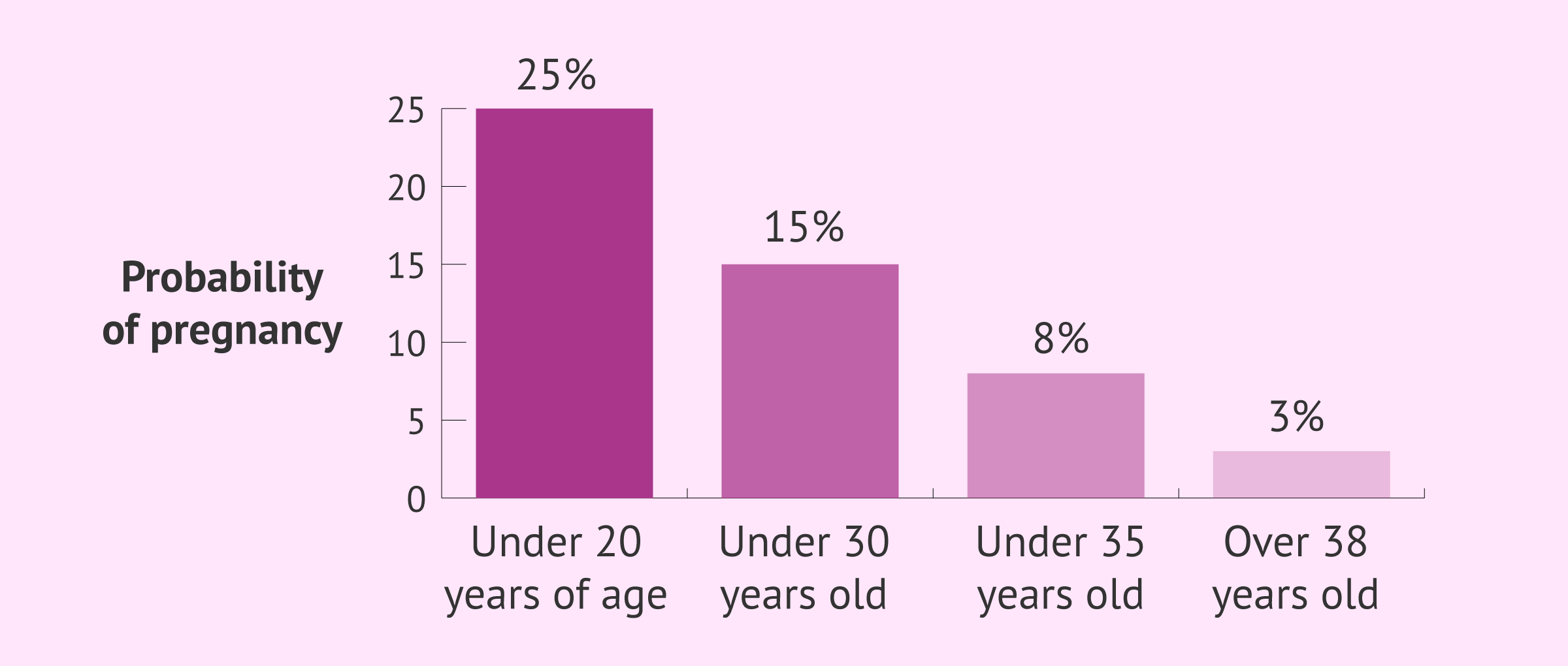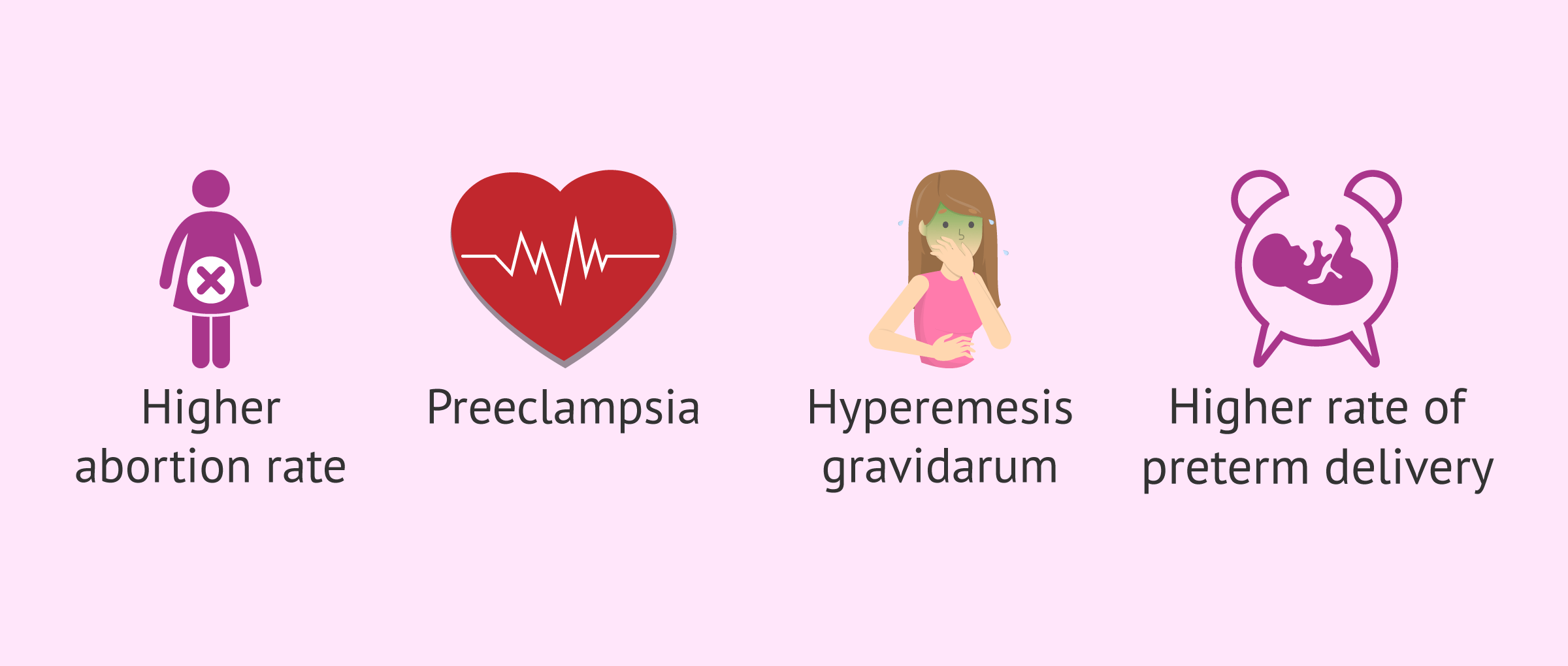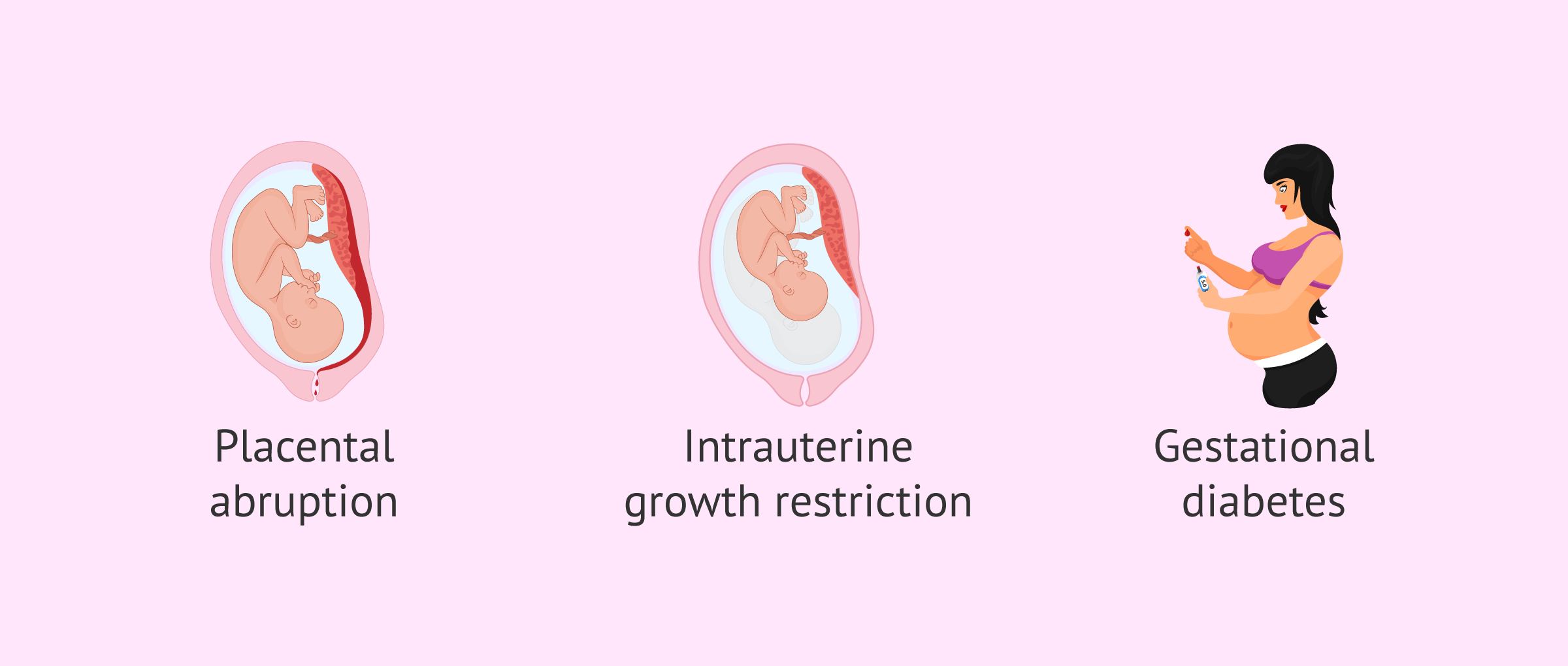More and more women are asking themselves what is the best age to have children. In order to answer this question, it is necessary to know all the demands of motherhood. Nevertheless, it is true that there is a tendency to delay motherhood nowadays.
The age of a new mother in Spain has been increasing over the years to reach 32.2 years on average in 2022 according to data from the National Institute of Statistics (INE). However, more and more women are becoming mothers after the age of 40.
There are several causes that have led to this delay in childbearing. The main reason is the lack of economic and work stability in young women. It should also be taken into account that thanks to assisted reproduction the number of mothers over 35 years of age have been growing.
Provided below is an index with the 9 points we are going to expand on in this article.
- 1.
- 2.
- 2.1.
- 2.2.
- 3.
- 4.
- 5.
- 6.
- 6.1.
- 6.2.
- 6.3.
- 7.
- 8.
- 9.
Biological age of motherhood
The optimal reproductive age for women is between 19 and 30 years of age. A woman's fertility decreases with age until she reaches menopause (the end of the reproductive age) at an age that varies between 45 and 52 years old. As the years go by, the quantity and quality of a woman's eggs decrease.
For this reason, the possibility of achieving pregnancy decreases with age. Among women who do not have any fertility problems, a 20-year-old woman who has unprotected intercourse on her fertile days has a 25% chance of becoming pregnant. If the woman is in her thirties, the possibility of gestation is reduced to 15%.
From this moment on, there is a sharp decline in fertility in women. Approximately, a woman of 35 years of age has an 8% chance of achieving a pregnancy, while after 38 years of age it is 3%.
Due to the decline in fertility and the fact that childbearing is being delayed today, many women are diagnosed as infertile when in fact they are not. What is happening is that their reproductive age has simply passed.
Delaying childbearing
Many women in their 20s and 30s do not consider themselves mature enough or financially stable enough to consider pregnancy. According to surveys, 2 out of 3 women of these ages wish to become mothers, but within 5 years.
From the age of 30 onwards, many women start to feel the biological clock of motherhood and consider that it is the right time. About 40% of women plan to become mothers in a short period of time.
Advantages of being a mother over 30
More and more women are deciding to become pregnant for the first time when they have reached at least 30 years of age, something that was not in the forefront of their minds quite some time ago. This has a number of advantages, such as those discussed below:
- Having financial solvency and a home.
- The couple's relationship is more stable.
- They feel more mature and capable of raising a child.
- The couple has had plenty of time to enjoy themselves alone and they are ready to face the arrival of a child as another stage in their lives.
Here are some of the reasons why the age of 30 is a good time to be a mom.
Inconveniences of delaying childbearing
Despite these advantages, at a woman's older age, gestation carries risks. Although women in their 40s may be fit and healthy, their bodies are no longer well prepared for pregnancy and childbirth.
Listed below are some of the problems we may encounter when delaying the desire for motherhood:
- Risk of developing diabetes or increasing blood pressure.
- Difficulty in conceiving, since it may be more difficult or directly unable to conceive and must resort to assisted reproduction techniques to achieve it.
- Deliveries are considered risky after 37 years of age and are more complicated and painful. The cesarean section rate is high.
- The baby's health is also affected by maternal age since with age the child is more likely to have a genetic abnormality. For example, the odds of Down syndrome (trisomy of chromosome 21) are 1/1250 when the woman is 20 years old; while women over 40 have a 1/30 risk of having a baby with Down syndrome.
In addition, by the time the child reaches adolescence, the parents will be in their 50s, which may imply a lack of understanding between the two. Despite all this, there is no ideal age to become a mother. Each woman must decide when is the perfect time to become pregnant and fulfill her dream of becoming a mother.
When is it considered to be advanced maternal age?
Biologically, a woman presents advanced maternal age after 35-40 years of age for all the reasons mentioned above. The passage of time has a great impact on a woman's ovarian reserve.
In addition, on numerous occasions, older women have poorer quality eggs and tend to have aneuploidy. The main consequence of this is that there is a higher risk of miscarriage or of having genetically altered embryos, which would make implantation in the uterus more difficult.
For all these reasons, specialists recommend preserving fertility if you do not wish to become a mother for the time being. Thus the eggs are frozen at low temperature and can be kept for long periods of time without affecting their quality. When the woman feels ready to become a mother, these eggs will be thawed and in vitro fertilization (IVF) will be performed.
If you are considering preserving your fertility to have a baby in the future, we recommend that you start by getting a Fertility Report. In 3 simple steps, it will show you a list of clinics that fit your preferences and meet our strict quality criteria. Moreover, you will receive a report via email with useful tips to visit a fertility clinic for the first time.
Pregnancy after 40
Women who become pregnant after the age of 35 should also take special care during pregnancy. According to the World Health Organization (WHO), a maternal age of 35 years or older is considered a medium risk factor. These are some of the risks associated with pregnancy after the age of 40:
- Higher abortion rate
- while women under 35 years of age have a 15% chance of having a miscarriage, in women between 35 and 45 years of age this rate is between 20 and 35%.
- Preeclampsia-eclampsia
- it has been shown that the risk of suffering from any of these diseases during pregnancy at an advanced maternal age is higher.
- Hyperemesis gravidarum
- consists of a situation of extreme nausea and vomiting during gestation that may even result in the loss of 5% of body weight.
- Higher preterm labor rate
- several studies have shown that the risk of premature and low birth weight is higher in adolescents and women over 35 years of age.
- Placental abruption
- is a serious event in which the placenta detaches from the wall of the uterus. Other risk factors besides age are: smoking, hypertension, excess amniotic fluid, multiple pregnancies, etc.
- Intrauterine growth restriction (IUGR)
- this is an imbalance that prevents the correct development of the fetus, causing it to weigh less than 90% of the weight of other babies of the same gestational age.
- Gestational diabetes
- this type of diabetes is detected by the O'Sullivan test, which is performed on all pregnant women in the 24-28th week of pregnancy. In women aged 35 years or older, this test is performed in both the first and third trimester.
However, a woman can carry a pregnancy into her 40s, and even into her 50s, as long as she is in good health. The difficulty at that age lies more in getting pregnant than in carrying the pregnancy itself once it is achieved.
More detailed information on this subject can be found in the following article: Becoming a mother after the age of 40: possibilities and risks.
What fertilization alternatives are available?
As a result of the delay in childbearing, more and more people are trying to fulfill their desire to have offspring through other methods. Reproduction is not something that only depends on a woman's age, but the quality of sperm also decreases with the passage of time, although it is not such a drastic aspect.
In cases of advanced maternal age, it is best to resort to in vitro fertilization (IVF) and preimplantation genetic diagnosis (PGD). This will ensure the transfer of embryos that are genetically healthy and therefore more likely to implant and result in pregnancy.
To perform a PGD, one should undergo IVF as the main treatment. If you are looking for a clinic to get started, we recommend that you generate your individual Fertility Report now. It is a useful, simple tool that, in just 3 steps, will give you a list of the clinics that have passed our rigorous selection process. You will receive an email in your inbox with a report that contains tips and recommendations to get started.
In cases where the reproductive stage has ended and the woman's ovarian reserve is depleted, the way to achieve gestation will be through donor eggs. This fertility treatment has a high guarantee of success but has the disadvantage of having to give up the genetic load. Therefore, IVF with oocyte donation is one of the most emotionally taxing reproductive options for patients
FAQs from users
What are the risks of getting pregnant before the age of 20?
Women who become pregnant under the age of 20 have more biological risks related to lower birth weight and premature births. In addition, there may be a risk of high blood pressure during pregnancy along with psychological problems, among others.
Read more
What is the ideal age to become a mother?
There is no such thing as an ideal age to become a mother. The important thing to keep in mind is that age is an essential factor for female fertility.
As a woman's age advances, her number of available eggs decreases until they are depleted. For this reason, it is often said that the best age to achieve pregnancy is between 18 and 35 years of age.
After the age of 35, many women find it difficult to conceive. In these cases, the solution would be to resort to assisted reproduction techniques.
Does age influence female fertility?
The answer is yes. As women age, changes occur in the ovaries that affect fertility.
All women are born with a finite number of eggs and no new eggs are produced throughout life. This number of eggs decreases as a woman's age increases until it is completely depleted by the time she reaches the menopausal stage.
Therefore, age is an essential factor for female fertility and for achieving pregnancy.
Recommended reading
If you want to find out more about the possibilities of pregnancy for women of advancing age, we recommend reading this article: How does the mother's advanciing age affect pregnancy?
If, however, you are not interested in becoming a mother just yet, but don't want to risk fertility issues in the furture, then it may be a good idea to preserve some of your eggs. You can find in depth information about oocyte cryopreservation in the following article: Fertility preservation in young women
We make a great effort to provide you with the highest quality information.
🙏 Please share this article if you liked it. 💜💜 You help us continue!
References
Gunilla Sydsjö, Malin Lindell Pettersson, Marie Bladh, Agneta Skoog Svanberg, Claudia Lampic, Elizabeth Nedstrand. Evaluation of risk factors' importance on adverse pregnancy and neonatal outcomes in women aged 40 years or older. BMC Pregnancy Childbirth. 2019 Mar 13;19(1):92 (View)
Sauer M, Paulson R, Lobo R 1990 A preliminary report on oocyte donation extending reproductive potential to women over 40. New England Journal of Medicine 323, 1157–1160 (View)
Syuichi Ooki. Maternal age and birth defects after the use of assisted reproductive technology in Japan, 2004-2010. Int J Womens Health. 2013;5:65-77. doi: 10.2147/IJWH.S32296. Epub 2013 Feb 18 (View)
FAQs from users: 'What are the risks of getting pregnant before the age of 20?', 'What is the ideal age to become a mother?' and 'Does age influence female fertility?'.
Authors and contributors


More information about Michelle Lorraine Embleton







Hi, I really really want to be a mum but I am only 22. My partner is a bit older than me and he is worried I may be too young. Anyone else become a young mum?
Hi Julieshoes998
I hope our article has been informative for you on this question. In terms of your fertility, you are at a fantastic age to try for pregnancy.
In a typical situation, when no infertility issues are present, at 22 years old you will have plenty of good quality eggs for conception to occur, and a young healthy body to nuture the growing baby in pregnancy.
Other things should be considered as well, such as: are you financially able to support a baby at this time, and the added medical expenses of pregnancy? Are you mentally ready for a life of parenthood and the responsibility it brings?
I hope my reply helps and wish you luck with your final choice.
Hello, I am 42 years old and I have a daughter that is 9 years old, it took me 4 years to get pregnant with her, I thought it was normal. Now I have been trying again for a year and I am thinking of having a study to tell me if it is still possible or if I have a fertility problem.
Hi MaryAnn,
Women are born with a limited number of eggs that are depleted over time until menopause. It is important for you to know that after the age of 35, your ovarian reserve, that is, the quantity of eggs available, is drastically reduced, but also their quality.
Therefore, if you have been trying for some time without success, the best thing to do is to visit a fertility specialist. One option would be to try IVF with your own eggs, although it would be advisable to do a PGD to transfer only healthy embryos without genetic alterations and, therefore, with a greater probability of implantation.
Another alternative would be the accumulation of oocytes in case of low response to medication. Finally, there is also the possibility of IVF with oocyte donation.
If you are not sure what procedure would suit you better, I encourage you to complete our Fertility Report, we can guide you according to your characteristics and offer you different treatments and clinics in your area.
I hope I have helped you.
Best regards.